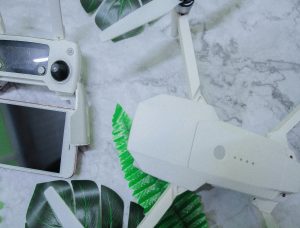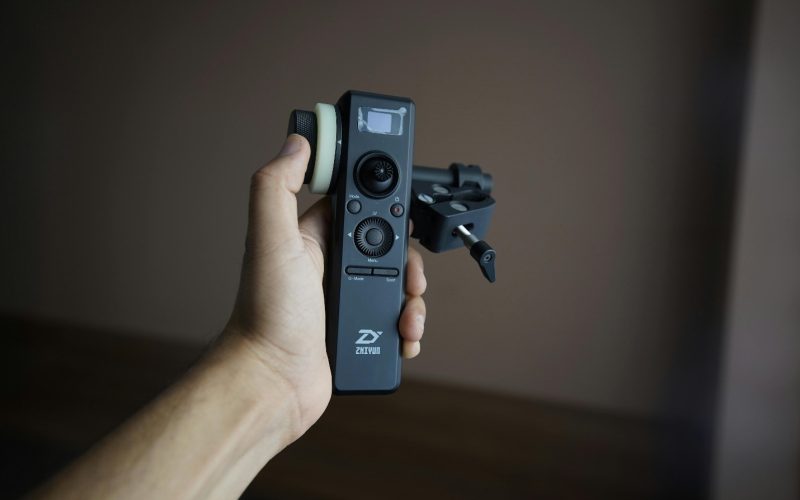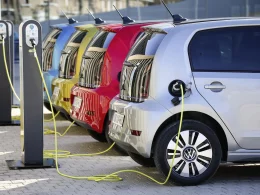Newest Innovations in Home Climate Control
Home climate control has evolved significantly in recent years, driven by advancements in technology and a growing emphasis on energy efficiency and smart living. Modern solutions go beyond traditional heating and cooling systems, incorporating smart technology, improved efficiency, and integration with other home systems. This article explores the latest innovations in home climate control, highlighting cutting-edge products that enhance comfort, efficiency, and convenience.

Understanding Modern Climate Control
Home climate control encompasses systems and devices designed to regulate temperature, humidity, and air quality within a living space. Innovations in this field focus on improving energy efficiency, automating climate management, and integrating with other smart home technologies.
Key Innovations in Home Climate Control
- Smart Thermostats
- Advanced Air Purifiers
- Smart HVAC Systems
- Energy-Efficient Heat Pumps
- Smart Humidifiers and Dehumidifiers
- Home Climate Monitoring Systems
- Smart Thermostats
Overview: Smart thermostats represent a significant leap from traditional temperature control systems. They offer features such as remote access, learning capabilities, and integration with other smart home devices.
Notable Products:
- Nest Learning Thermostat (3rd Gen): Features a sleek design, learning capabilities to adapt to user habits, and remote control via the Google Home app.
- Ecobee SmartThermostat with Voice Control: Includes built-in Alexa voice control, room sensors for more accurate temperature readings, and integration with various smart home systems.
Benefits:
- Energy Efficiency: Automatically adjusts heating and cooling based on user preferences and occupancy.
- Convenience: Remote control and voice commands provide easy management from anywhere.
Drawbacks:
- Cost: Higher initial investment compared to traditional thermostats.
- Compatibility: May require additional setup for integration with existing HVAC systems.
- Advanced Air Purifiers
Overview: Modern air purifiers offer advanced filtration technologies to improve indoor air quality. Innovations include HEPA filters, UV-C light, and smart features.
Notable Products:
- Dyson Pure Cool TP04: Combines air purifying with cooling capabilities, features a HEPA filter, and integrates with the Dyson Link app for remote control and monitoring.
- Philips Air Purifier Series 3000i: Offers a multi-stage filtration system, real-time air quality monitoring, and smart integration with the Philips Clean Home+ app.
Benefits:
- Improved Air Quality: Effective at removing allergens, pollutants, and harmful particles.
- Smart Features: Real-time air quality monitoring and remote control enhance usability.
Drawbacks:
- Maintenance: Filters need regular replacement to maintain performance.
- Noise Levels: Some models may be noisy during operation.
- Smart HVAC Systems
Overview: Smart HVAC systems integrate advanced controls and sensors to optimize heating, cooling, and ventilation. They offer improved energy efficiency and remote management.
Notable Products:
- Carrier Infinity Series: Features advanced temperature control, zoning capabilities, and connectivity with the Carrier app for remote management.
- Trane XV20i Variable Speed Air Conditioner: Offers variable speed technology for precise temperature control and energy savings.
Benefits:
- Energy Efficiency: Optimizes energy use and reduces utility costs.
- Comfort: Provides consistent temperature control and improved indoor air quality.
Drawbacks:
- Installation Costs: High upfront costs for installation and setup.
- Complexity: May require professional installation and maintenance.
- Energy-Efficient Heat Pumps
Overview: Heat pumps are gaining popularity due to their energy efficiency and versatility. They can both heat and cool homes and are increasingly being designed for better performance in various climates.
Notable Products:
- Mitsubishi Electric Hyper-Heating INVERTER (H2i) Heat Pump: Designed for extreme weather conditions, offers high efficiency and quiet operation.
- Daikin FIT Heat Pump: Features a compact design, high energy efficiency, and quiet performance.
Benefits:
- Energy Efficiency: Reduces energy consumption compared to traditional heating and cooling systems.
- Versatility: Provides both heating and cooling capabilities.
Drawbacks:
- Initial Cost: Higher installation costs compared to traditional systems.
- Performance: May be less effective in very cold climates without supplemental heating.
- Smart Humidifiers and Dehumidifiers
Overview: Smart humidifiers and dehumidifiers help maintain optimal humidity levels in the home. Innovations include remote control, automated adjustments, and integration with smart home systems.
Notable Products:
- Dyson Pure Humidify+Cool: Combines a humidifier, air purifier, and fan into one unit, featuring smart sensors and remote control via the Dyson Link app.
- Frigidaire High Humidity Dehumidifier: Offers smart controls, continuous draining options, and a large capacity for effective moisture removal.
Benefits:
- Comfort: Maintains ideal humidity levels to prevent mold growth and improve indoor air quality.
- Smart Features: Allows for remote control and automation.
Drawbacks:
- Maintenance: Requires regular cleaning and maintenance to prevent mold and bacteria buildup.
- Noise: Some models may produce noise during operation.
- Home Climate Monitoring Systems
Overview: Home climate monitoring systems provide comprehensive data on temperature, humidity, and air quality, often integrating with other smart home devices.
Notable Products:
- Netatmo Weather Station: Offers detailed data on indoor and outdoor climate conditions, integrates with various smart home systems, and provides historical data trends.
- Awair Element: Monitors indoor air quality, including CO2 levels, humidity, and VOCs, and offers insights through a mobile app.
Benefits:
- Comprehensive Monitoring: Provides detailed insights into home climate conditions.
- Integration: Can integrate with other smart home devices for automated adjustments.
Drawbacks:
- Cost: Higher investment compared to basic climate control devices.
- Complexity: Requires setup and integration with other systems.
Competitive Table
| Product | Type | Connectivity | Key Features | Price Range |
| Nest Learning Thermostat (3rd Gen) | Smart Thermostat | Wi-Fi, Bluetooth | Learning capabilities, remote control | $250 – $280 |
| Ecobee SmartThermostat with Voice Control | Smart Thermostat | Wi-Fi, Bluetooth | Built-in Alexa, room sensors | $250 – $270 |
| Dyson Pure Cool TP04 | Air Purifier + Fan | Wi-Fi | HEPA filter, cooling function | $500 – $550 |
| Philips Air Purifier Series 3000i | Air Purifier | Wi-Fi | Multi-stage filtration, real-time monitoring | $350 – $400 |
| Carrier Infinity Series | Smart HVAC System | Wi-Fi | Zoning capabilities, advanced controls | $4,000 – $6,000 |
| Trane XV20i Variable Speed AC | Smart HVAC System | Wi-Fi | Variable speed technology, energy savings | $4,500 – $6,500 |
| Mitsubishi Electric Hyper-Heating INVERTER | Heat Pump | None | High efficiency, extreme weather performance | $3,000 – $5,000 |
| Daikin FIT Heat Pump | Heat Pump | None | Compact design, quiet operation | $3,000 – $4,500 |
| Dyson Pure Humidify+Cool | Smart Humidifier + Air Purifier + Fan | Wi-Fi | Combined functions, smart sensors | $700 – $800 |
| Frigidaire High Humidity Dehumidifier | Dehumidifier | None | Smart controls, large capacity | $250 – $300 |
| Netatmo Weather Station | Climate Monitoring System | Wi-Fi | Indoor and outdoor data, historical trends | $180 – $220 |
| Awair Element | Climate Monitoring System | Wi-Fi | Monitors air quality, integrates with smart home | $300 – $350 |
Analysis Table
| Product | Accuracy (1-5) | Ease of Use (1-5) | Connectivity (1-5) | Features (1-5) | Value for Money (1-5) | Overall Rating (1-5) |
| Nest Learning Thermostat (3rd Gen) | 5 | 5 | 5 | 5 | 4 | 4.8 |
| Ecobee SmartThermostat with Voice Control | 5 | 4 | 5 | 5 | 4 | 4.6 |
| Dyson Pure Cool TP04 | 4 | 5 | 5 | 4 | 3 | 4.2 |
| Philips Air Purifier Series 3000i | 5 | 4 | 5 | 5 | 4 | 4.6 |
| Carrier Infinity Series | 5 | 4 | 5 | 5 | 3 | 4.4 |
| Trane XV20i Variable Speed AC | 5 | 4 | 5 | 5 | 3 | 4.4 |
| Mitsubishi Electric Hyper-Heating INVERTER | 5 | 4 | 2 | 5 | 4 | 4.0 |
| Daikin FIT Heat Pump | 4 | 4 | 2 | 4 | 4 | 3.8 |
| Dyson Pure Humidify+Cool | 4 | 4 | 5 | 5 | 3 | 4.2 |
| Frigidaire High Humidity Dehumidifier | 4 | 4 | 2 | 4 | 4 | 3.8 |
| Netatmo Weather Station | 5 | 4 | 5 | 4 | 4 | 4.4 |
| Awair Element | 4 | 4 | 5 | 4 | 3 | 4.0 |
Conclusion
The newest innovations in home climate control offer a range of advanced features designed to enhance comfort, efficiency, and convenience. From smart thermostats that learn and adapt to your preferences to advanced air purifiers that ensure clean indoor air, these products reflect the growing trend toward integrated, smart home solutions.
Smart Thermostats such as the Nest Learning Thermostat and Ecobee SmartThermostat offer sophisticated controls and energy savings. Advanced Air Purifiers like the Dyson Pure Cool TP04 and Philips Air Purifier Series 3000i provide high-performance air filtration. Smart HVAC Systems and Energy-Efficient Heat Pumps ensure optimal climate control with greater energy efficiency. Smart Humidifiers and Dehumidifiers and Home Climate Monitoring Systems offer additional tools for maintaining ideal home conditions.
By investing in these cutting-edge technologies, homeowners can create a more comfortable, efficient, and smart living environment. As technology continues to advance, we can expect even more innovations that will further transform how we manage our home climate.









